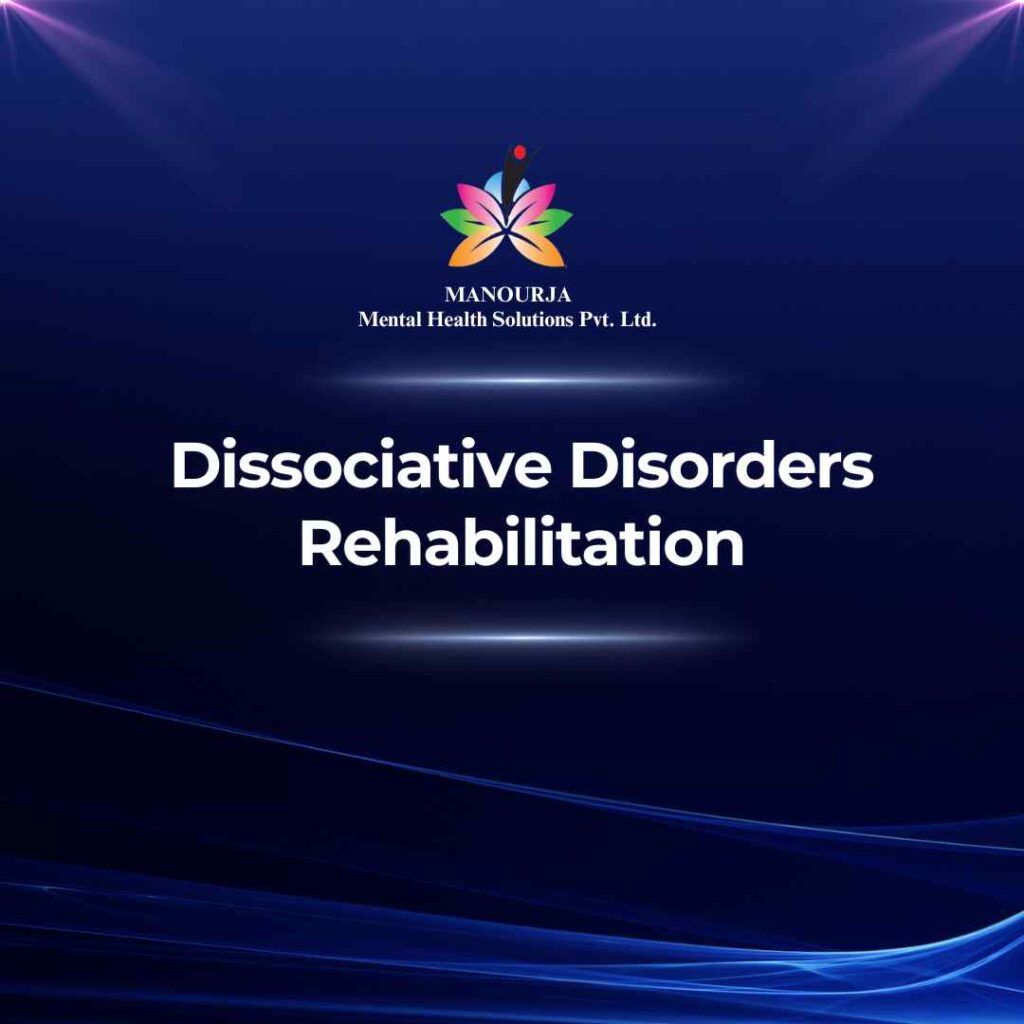Dissociative Disorders Rehabilitation

Dissociative Disorders are complex mental health conditions that involve disruptions or breakdowns of memory, awareness, identity, or perception—often occurring as a result of overwhelming stress, traumatic events, or abuse during childhood. Recognizing the signs and symptoms of these disorders is essential for accessing the appropriate level of care, whether outpatient (OPD) or inpatient (IPD) psychosocial rehabilitation.
Signs and Symptoms of Dissociative Disorders
Key indicators of Dissociative Disorders that individuals and their families should monitor include:
- Memory Loss (Amnesia): Inability to recall information about oneself or events, not due to ordinary forgetfulness.
- Depersonalization: Experiencing a sense of being detached from oneself.
- Derealization: Feeling as though the world around you is unreal.
- Identity Confusion or Fragmentation: Fluctuating senses of identity, sometimes experiencing distinct alternate identities.
- Dissociative Fugue: Sudden, unexpected travel away from home or one’s customary place of work, with an inability to recall one’s past.
Indicators for OPD vs. IPD Psychosocial Rehabilitation
Outpatient (OPD) Psychosocial Rehabilitation
- Suitable for individuals with mild to moderate symptoms who can still function in their daily lives.
- Effective for those who have stable living conditions and a supportive home environment.
- Appropriate when the person is not at immediate risk of harm to themselves or others, and symptoms are manageable with regular therapeutic intervention.
Inpatient (IPD) Psychosocial Rehabilitation
- Necessary for individuals with severe symptoms that significantly impair their ability to function or pose safety risks.
- Required when there is a risk of harm, or when symptoms are so disruptive that continuous supervision and care are needed.
- Recommended if the individual experiences severe dissociative episodes that lead to confusion, loss of functionality, or potential harm.
Factors Influencing the Decision
- Severity of Symptoms: The intensity of the dissociative symptoms and their impact on the individual’s daily functioning.
- Safety Concerns: Risks associated with the disorder, such as potential harm during dissociative episodes.
- Support System: The strength and availability of a supportive network to assist in managing the condition.
- Previous Treatment Response: How well the individual has responded to outpatient treatments or other interventions.
Role of Psycho-social Rehabilitation in Treating Dissociative Disorders
Psycho-social rehabilitation helps individuals with Dissociative Disorders by:
- Stabilization: Focusing on stabilizing the patient and ensuring safety.
- Psychoeducation: Teaching both the patient and family about the disorder and its management.
- Skill Development: Building skills to cope with symptoms, manage stress, and improve emotional regulation.
- Therapy: Addressing underlying trauma and helping to integrate dissociated parts of the personality.
Techniques and Approaches Used at MANOURJA
At MANOURJA, specific scientific techniques and approaches are utilized:
- Cognitive Behavioral Therapy (CBT): Helps in identifying and changing dysfunctional thought patterns.
- Dialectical Behavior Therapy (DBT): Aims to enhance coping mechanisms and improve emotional regulation.
- Eye Movement Desensitization and Reprocessing (EMDR): Often used for trauma-related symptoms integral to Dissociative Disorders.
- Narrative Therapy: Encourages patients to recount their experiences and view their stories from different perspectives.
Steps in the Rehabilitation Process at MANOURJA
- Comprehensive Assessment: Detailed psychological evaluation to understand the extent and nature of the dissociation.
- Development of a Personalized Treatment Plan: Crafting a tailored treatment plan that addresses individual symptoms and needs.
- Implementation of Therapy: Engaging the patient in specific therapies designed to treat dissociative symptoms and underlying trauma.
- Monitoring and Adjustment: Continuously evaluating progress and making necessary adjustments to the treatment strategy.
- Support and Aftercare: Providing ongoing support to maintain gains achieved during treatment and prevent relapse.
Through dedicated psycho-social rehabilitation, individuals with Dissociative Disorders can work towards recovery, gaining tools to manage their symptoms and reintegrate into society with improved mental and social functioning. The comprehensive care at MANOURJA ensures that each individual receives personalized attention and support tailored to their unique needs.
“Step by step, discover your strength; reclaim your story, reclaim your life.”
